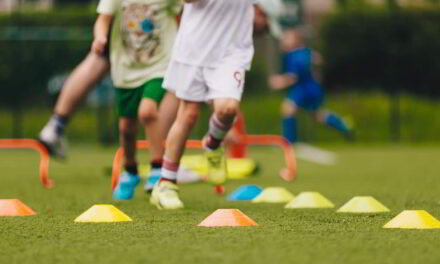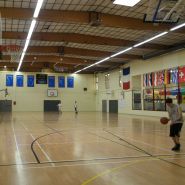What do you want from your PE lessons? If engagement and full participation are two core components then read on! Below are some lessons suggestions/ Schemes of Work which will help to achieve these objectives:
1. The actual structure of your lesson will have a significant impact on pupil enjoyment – whatever the activity
A semi-competitive warm-up (E.g. tig with a rugby ball/ completing 5 passes with a rugby ball without any member of the team dropping the ball) is often a good way to engage the pupils early on. The use of the pupils to lead the stretching component of your warm-up can also be very useful to engage those pupils who find it very difficult NOT to talk! You, the teacher, can then interrupt with keywords (E.g. The name of the muscle being stretched) if the leader does not know.
The core part of the lesson could be filled with the key skill being practised, for a short period, in a non-competitive situation. This will allow the pupils to focus solely on the technique of the new skill being introduced. For example, it could include dribbling in and out of cones at the most basic level. However, the non-competitive element should be minimized in length to keep the pupils fully engaged.
The next phase of your lesson could include the pupils dribbling around the cones whilst being on time – this will help put the students under pressure replicating the match situation in a semi-competitive situation. This particular skill focus could also finish with a chase- The person dribbling has to dribble 30m before getting a shot away whilst their partner, who starts 5m behind, is trying to catch them and prevent any shot at goal.
Finally, always try and finish with a conditioned game embedding your skill focus. After all, we all want our pupils to experience fun match/ game situations which will hopefully lead to lifelong participation in an activity or two outside of the school setting. Below I have included two niche sports that are bound to get the pupils highly energized and fully engaged. Give them a go, you might just be amazed!
2. Dodgeball
Do you just use dodgeball when groups have to be doubled up (On those wet weather days) or have you developed a scheme of work around the sport? Either way, we are pretty sure that your pupils will enjoy this high-intensity game! For those of you who are yet to experience this team-target game, it involves bursts of high-intensity exercise and rapid changes in direction of movement to avoid being hit by a ball- See this link for a more in-depth explanation of the rules: International Dodgeball Association – 10 Easy Dodgeball Rules (playdodgeball.org). As well as the standard rules identified in the link above, a number of adaptations can be made including:
a. The use of gym boxes to hide behind.
b. The use of ‘Bodyguards’ (These pupils can only be out when they are the last man standing on their team).
c. The use of ‘Kings’ or ‘Queens’ (Identified by bibs)- If you manage to hit the opposition’s King or Queen you immediately win the game.
d. The use of SECRET ‘Kings’ or ‘Queens’- As above but only the match official knows who the Kings/Queens are.
A unit of dodgeball is also a fantastic opportunity to bring in some pupil leadership work where they devise new versions of the game and co-lead the session. Go on, give it a go!
3. Spikeball
This is a game that introduces a range of skills and components of fitness- agility, balance, speed, power, throwing, and catching to name but a few. Tactically, it will challenge the ablest of students with the aim of hitting the ball onto the mat (Net) without the opposing team being able to successfully return the ball. This game also incorporates key volleyball skills including spikes and sets whilst teamwork is essential for any success. It is also a relatively affordable activity and it is a fantastic activity to complete outside in the summer sun when space may be at a premium due to your sports hall being ‘stolen’ by the examinations officer!
Take a look at the PE Office for the elaborate lesson plans and scheme of work that greatly benefit a PE department. Book a free demo by calling 01909 776900, sending an email to mail@peoffice.co.uk or by clicking here.










